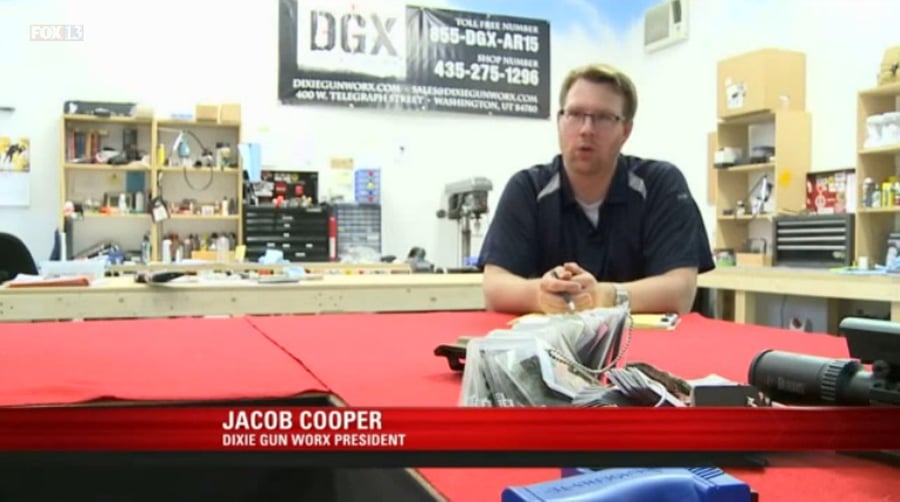Like many advisers, Jacob Cooper, founder of San Diego-based registered investment adviser Total Wealth Management, held himself out in the aftermath of 2008 as a financial expert who could guide investors through troubled economic times.
He sought out investors on his weekly radio show called, “Uncommon Wealth,” in which he talked tactical asset management and safe strategies for retirement planning. A former certified financial planner, he allegedly used the fact that he was a Mormon, an Eagle Scout and that his father served in the United States Marine Corps to build his business to over $100 million in assets and more than 600 clients.
Last week, however, a court-appointed receiver in a case brought by the Securities and Exchange Commission determined that more than $44 million of those assets are likely lost.
“It seems to prove what we've suspected all along, which is that Total Wealth Management and its principals were funneling away money, and the investments have been unfunded for years,” said Maria Severson, an attorney at Aguirre & Severson, who is representing investors who are now suing Mr. Cooper and other Total Wealth Management principals. “It was a sham.”
It's still not clear beyond the initial estimate where much of the money went or how much will ultimately be recovered, according to the receiver. Most of the $100 million was invested in funds and private placements that appeared to be losing money or to be insolvent but had revenue sharing agreements with Total Wealth Management, according to the receiver.
Millions, for example, were reportedly sunk into a coffee shop franchise business despite the fact that it was “insolvent since its inception,” according to the receiver.
Another $18 million went to a holding company that purportedly used the funds to operate two restaurants in New York, both of which are closed and whose inventories “appear to be lost,” according to the receiver.
Both restaurants paid Total Wealth Management revenue sharing fees despite the substantial losses, according to the receiver's report. Total Wealth Management received revenue sharing fees totaling some $1.3 million from October 2009, the year the firm was founded, to September 2014, the receiver said.
Mr. Cooper also converted funds for personal use, according to the investors' complaint. In one instance, clients accused him of using funds to help operate a gun store, Dixie Gun Worx, which was
building a shooting range next to a shelter for victims of domestic violence. A manager at Dixie Gun Works, who declined to give his name, said that it is no longer affiliated with Mr. Cooper.
Mr. Cooper, who has since been actively marketing himself as a science fiction and fantasy author, did not respond to requests for comment. He is currently representing himself after the SEC accused him of using client funds to pay attorney's fees.
So far, just over $2 million in cash has been recovered, according to the receiver.
“It's a Main Street Madoff,” said Christopher Bryant, who invested $500,000 with Total Wealth Management and said he has only recovered $50,000.
To carry out the alleged scheme, Mr. Cooper and other principals at Total Wealth Management pooled around 75% of clients' $100 million into proprietary investment funds, known as the Altus Funds, which then invested in the unsuccessful coffee shops and restaurants, among other enterprises, according to the clients' complaint.
A substantial portion of the Altus funds, at least $30 million, went into a private placement entity called Private Placement Capital Notes, which directed funds to a start-up sulfate mining enterprise and a distressed golf resort off the coast of South Carolina, the receiver said.
Until 2013, the private placement, which required investors to wait five years before redeeming their money, continued to pay out interest of as much as 12.5% semi-annually in cash despite being invested in “holdings which do not appear to have been sufficient to generate the substantial interest payments made by the entity,” the receiver said in the report.
“Prospects for recovery are highly uncertain,” the receiver said of the money invested in the private placement.
The troubles did not go away once investors filed a lawsuit looking to recover their funds. The firm allegedly blocked access to the funds, the clients said, and Mr. Cooper informed them that if any clients wanted to speak with him, they would first have to sign a waiver indemnifying him, according to the lawsuit.
Mr. Cooper then raised his clients' fees, charging more than $300,000, which he then used to pay the attorneys defending him against the investors' complaints and the SEC. He also
used $150,000 in client money in attempt to pay a settlement against the SEC, according to a complaint filed by the SEC last month.
Mr. Cooper has moved to Washington, Utah, and authored a series of fantasy novels called “Circle of Reign.”
He makes no mention of his past career on social media, including on his
Facebook page







